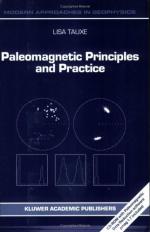|
This section contains 716 words (approx. 3 pages at 300 words per page) |

|
The first ever treatise on experimental science by thirteenth century scholar Petrus Peregrinus of Marincourt dealt with magnetism ("Epistola de Magnete"). However, direct observations of the geomagnetic field were not recorded until the late sixteenth century, when the magnetic compass became a widespread tool for navigation. In order to understand nature and origin of Earth's magnetic field, however, much longer records are necessary. Paleomagnetic research draws this information from rocks that acquire a remanent magnetization upon formation.
The natural magnetization of a rock is parallel to the ambient magnetic field. It is carried by minute amounts of ferrimagnetic minerals and can be stable over geological time scales. Precise snap-shots of the past geomagnetic field are recorded by volcanic rocks, while sedimentary rocks retain smoothed records acquired over discrete intervals of time. Sequences of rocks can thus act like a magnetic tape, which records a piece of music. Unfortunately...
|
This section contains 716 words (approx. 3 pages at 300 words per page) |

|


